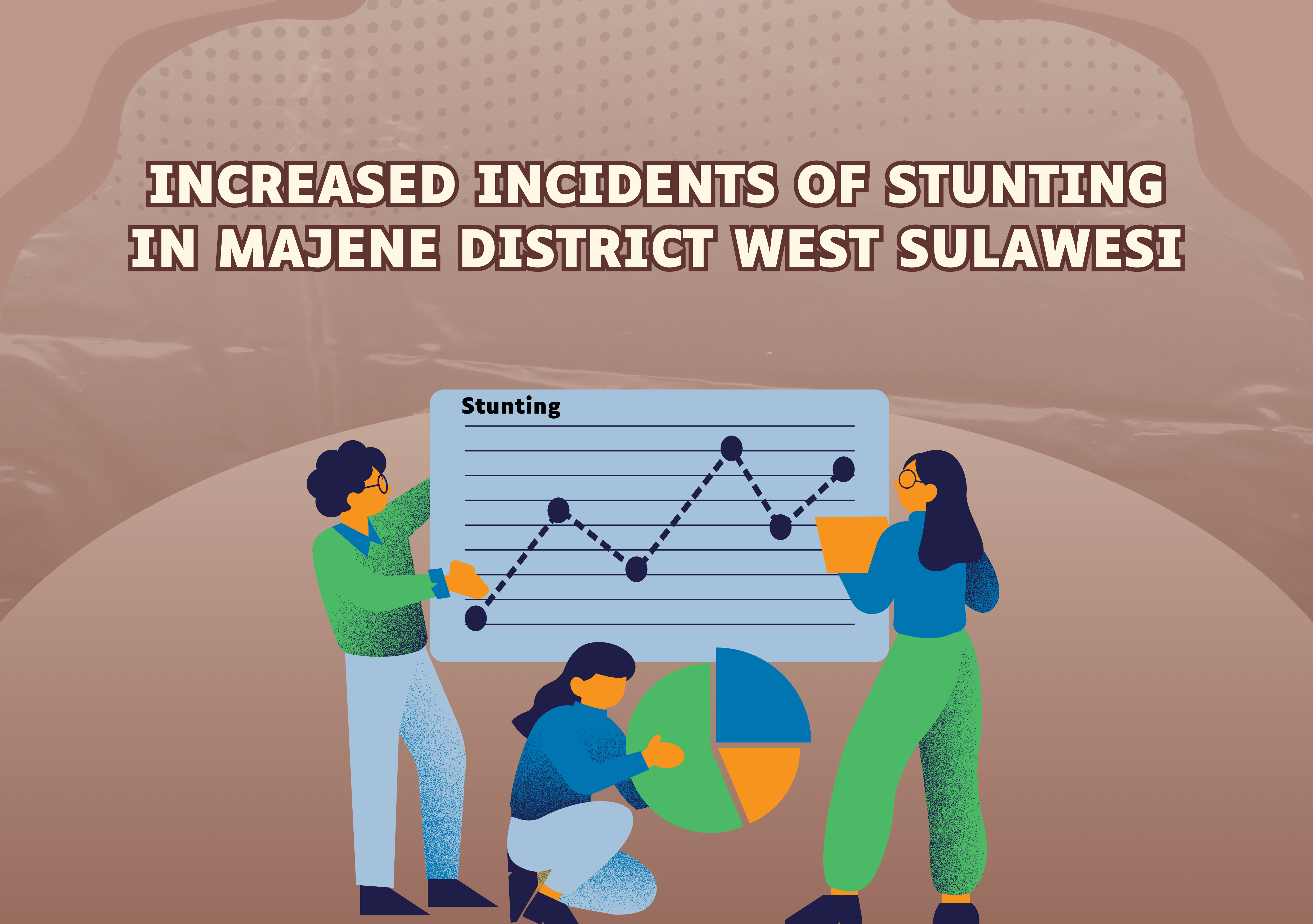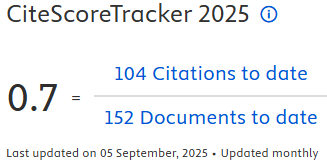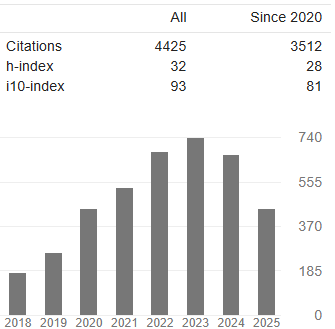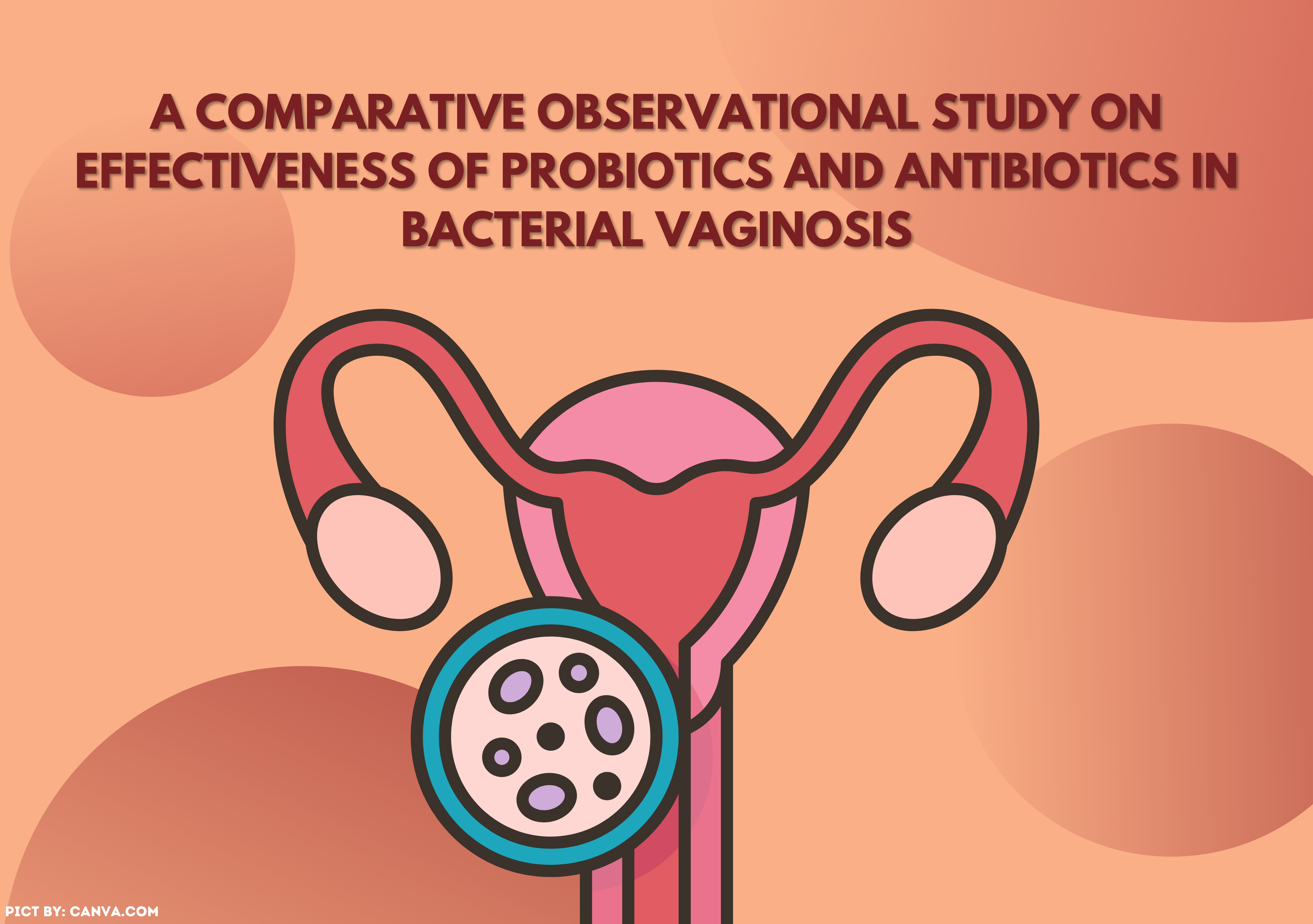INCREASED INCIDENTS OF STUNTING IN MAJENE DISTRICT WEST SULAWESI

Introduction: Stunting is a condition of chronic malnutrition caused by malnutrition that occurs over a long period of time, caused by food supply that does not match the nutritional needs of children. Developmental delay occurs when the child is still in the mother's womb and appears when the child is two years old. There is prevalence of stunted toddlers in 6 districts in West Sulawesi, namely Majene District (40.6%), Polewali Mandar District (39.3%), Mamasa (38.6%), Mamuju (33.8%), Central Mamuju (28.1%), and Install Wood (25.8%). Aims: Analysis of risk factors for stunting in Majene district. Method: This type of study is an observational study with a case-control study design. The number of toddlers is 418 toddlers. The sample for this study included 112 toddlers aged 0-59 months. The sampling technique is by means of proportional sampling. Results: the study shows that Kadarzi (OR 17.274), self-efficacy (OR 3.240), and socio-culture are risk factors for increased stunting in Majene District, KAP variable (OR 0.321) is a protective factor against stunting in Majene District. Conclusion: Kadarzi, self-efficacy, and socio-cultural variables are risk factors for stunting in Majene Regency. It is hoped that mothers will pay more attention to their toddler's nutritional intake from birth, especially on exclusive breastfeeding, MP-ASI, and various foods, and routinely bring their toddlers to the posyandu every month to find out their toddler's nutritional growth and development.
Alderman, Harold, and Derek D. Headey. (2017). “How Important Is Parental Education for Child Nutrition?” World Development 94: 448–64. https://doi.org/10.1016/j.worlddev.2017.02.007
Anggraeni, Zuhrotul Eka Yulis, Hendra Kurniawan, Mohammad Yasin, and Anis Dwi Aisyah. (2020). “The Relationship between Birth Weight, Birth Length and Gender with Stunting Incidents.” The Indonesian Journal of Health Science, 12 (1): 51–56. https://doi.org/10.32528/ijhs.v12i1.4856
Anisah Desma Fitriah, Leya Indah Permatasari, Ito Wardin. (2021). “The Relationship between Family Behavior Awareness of Nutrition (Kardzi) and Stunting Incidents in Toddlers in the Work Area of the Wangunharja Health Center, Jamblang District, Cirebon Regency. Indonesian Journal of Health Research, 4(20):32-46.
Auditna, Wulan, Budiman, and Eka Baculu. (2019). “Perceptions of Pregnant Women on Taboo Foods in Bulubete Village, Dolo Selatan District, Sigi Regency.” Jurnal Kolaboratif Sains, 1(1): 460–70.
Aulia, Dian Ika Puspitasari, Nailiy Huzaimah, Yulia Wardita, and Aldi Prawira Sandi. (2021). “Stunting and Maternal Factors (Education, Knowledge of Nutrition, Parenting, and Self-Efficacy).” Journal of Health Science Research, 6(1):27–31. https://doi.org/10.24929/jik.v6i1.1498
Basri, Nurchalisah, Mansur Sididi, and Sartika. (2021). “Factors Associated with Stunting in Toddlers (24-36 Months).” Window of Public Health Journal, 1(5): 417–26.
Central Bureau of Statistics. (2022). Maternal and Child Health Profile 2022. Catalog 42. Jakarta: Central Bureau of Statistics.
Dedeh Husnaniyah, Depi Yulyanti, Rudiansyah. 2020. “Correlation between Mother's Education Level and Stunting Incidence.” The Indonesian Journal of Health Science, 12(1): 1–10. https://doi.org/10.32528/ijhs.v12i1.4857
Erfince Wanimbo, and Minarni Wartiningsih. (2020)."Relationship Between Maternal Characteristics With Children (7-24 Months) Stunting Incident". Jurnal Manajemen Kesehatan Yayasan RS.Dr.Soetomo, 6(1):83-93. https://doi.org/10.29241/jmk.v6i1.300
Habibzadeh, H., H. Jafarizadeh, and A. Didarloo. 2015. “Determinants of Failure to Thrive (FTT) among Infants Aged 6-24 Months: A Case-Control Study.” Journal of Preventive Medicine and Hygiene 56 (4): E180–86.
Habibarrahman, St. Nurul Izzah, Yusriani, and Muhammad Khidri Alwi. (2023). “Knowledge Affecting Mother’s Behavior In Treating Stunting Toddlers.” Hospital Management Studies Journal, 4(2): 115–21. https://doi.org/10.24252/hmsj.v4i2.37639
Hotimah, Husnul, Haeruddin, and Ikhram Hardi. (2021). “Factors Influencing Stunting Incidents in Toddlers in Bonto Langkasa Selatan Village, Gowa Regency.” Window of Public Health Journal 2 (5): 1295–305. https://doi.org/10.33096/woph.v2i3.485
Illahi, Rizki Kurnia. (2017). “Relationship between Family Income, Birth Weight, and Birth Length with Stunting in Toddlers 24-59 Months in Bangkalan.” Journal of Health Management Foundation RS Dr. Soetomo, 3(1): 1–14. https://doi.org/10.29241/jmk.v3i1.85
Kusumawati, Dhiah Dwi, Tri Budiarti, and Susilawati. (2020). “I Identification of Stunting Toddler Characteristics at UPTD Puskesmas Cilacap Tengah II Year 2020”. JIKA, 5(2): 25–31.
Lela, Nur, and Andi Rizki A. (2022). “The Relationship between Use of Village Funds and Decreasing Stunting Cases in Sumillan Village, Alla District, Enrekang Regency.” Journal of Muslim Community Health (JMCH), 4(4): 170–83.
Ministry of Health of the Republic of Indonesia. (2022). Pocket Book of Results of the Year 2022 Indonesian Nutrition Status Study (SSGI). Jakarta: RI Ministry of Health.
Marlani, Reky, and Meri N. 2021. “Description of Mother Characteristics Affecting the Incidence of Stunting Toddlers Aged 24-59 Months at the Talang Banjar Health Center, Jambi City”. Batanghari Jambi University Scientific Journal, 21(3): 1370–73. https://doi.org/10.33087/jiubj.v21i3.1748
Masri, Erina, Wulan Kartika Sari, and Yensasnidar Yensasnida (2021). “The Effectiveness of Supplementary Feeding and Nutrition Counseling in Improving the Nutritional Status of Toddlers.” Perintis’s Health Journal, 7(2): 28–35. https://doi.org/10.33653/jkp.v7i2.516
Maulida, Maulida, and Suriani Suriani. 2021. “he Influence of Communication and Mobilization of Posyandu Cadres on Stunting Prevention Efforts.” Sriwijaya Journal of Nursing, 8(1): 1–10. https://doi.org/10.32539/JKS.V8i1.15734
Nasution, Indah Syafitri, and Susilawati. (2022). “Analysis of Factors Causing Stunting in Toddlers Age 0-59 Months.” Health Scientific Journal, 1(2):1–6. https://doi.org/10.55904/florona.v1i2.313
Oktaviani, Putri Pratiwi, Meylina Djafar, and Adhila Fayasari. (2019). “Application of Nutrition Aware Family Behavior (KADARZI) and Nutritional Status of Toddlers Age 24-59 Months at the Kranji Health Center in Bekasi.” Nutri-Science: Journal of Nutrition, Food and Its Applications, 3(2):115–26. https://doi.org/10.21580/ns.2019.3.2.3421
Paramashanti, Bunga Astria. (2019). Nutrition for Mothers and Children: For Health Students and the Public. Yogyakarta: New Press Library.
Rahayu, Atikah, and Laily Khairiyati. (2014). “Mother's Education Risk for Stunting in Children 6-23 Months.” The Journal of Nutrition and Food Research, 37(2): 129–36.
Rahayu, Ida, Syamsulhuda Budi M, and Apoina Kartini. (2022). “Interpersonal Communication Strategy (ICS) in Overcoming Stunting : A Review.” International Journal of Health, Education and Social (IJHES), 5(7): 43–54.
Satriawan, Elan. 2018. National Strategy to Accelerate Stunting Prevention 2018-2024. TNP2K. Jakarta: TNP2K.
Siti Nur Ain B. , Sunarto Kadir, Nur Ayini S. Lalu (2023).“Relationships of Nutritionally Conscious Family Behavior With Stunting Incidence in Toddlers At Motolohu Health Center.” Journal Health & Science: Gorontalo Journal and Science Community, 7(1):153-162. https://doi.org/10.35971/gojhes.v7i1.16110
Simamora, Verawati, Sabar Santoso, and Nanik Setiyawati. 2019. “Stunting and Development of Behavior.” International Journal of Public Health Science 8 (4): 427–31. https://doi.org/10.11591/ijphs.v8i4.20363
Sumarmi, Sri, Ratna Dwi W, Lailatul Muniroh, Asri Meidyah Agustin, et al. (2021). Strengthening the National Health System (SKN) Through the Implementation of Interpersonal Communication (KAP) and Implementation of Behavioral Change in Stunting Prevention. Angewandte Chemie International Edition, 6(11), 951–52.
Sriyanti, Titis, Essy Sonontiko Sayekti, and Diana Kholida. 2017. “Family Relationships Awareness of Nutrition (Kradezi) with Stunting in Toddlers Aged 0-24 Months in the Working Area of the Singotrunan Health Center, Banyuwangi Regency.” Healthy, 5(2): 56–71.
Sujianti, and Suko Pranowo. 2021. “Analysis of Factors Associated with Stunting in Toddler Age.” Indonesian Journal of Nursing Health Science, 6(2):104–12.
Sulastri, Delmi. 2012. “Determinants of Stunting in School-Age Children in Lubuk Kilang District, Padang City.” Majalah Kedokteran Andalas, 36 (1):39–50. https://doi.org/10.22338/mka.v36.i1.p39-50.2012
Utami, Riana Pangestu. (2021). “Analysis of the Effect of KADARZI Indicators on the Nutritional Status of Toddlers in Indonesia.” CHMK Health Journal, 5(2): 334–42.
Wanimbo, Erfince, and Minarni Wartiningsih. (2020). “Relationship between Mother Characteristics and Baduta Stunting (7-24 Months).” ournal of Health Management Foundation RS Dr. Soetomo, 6(1): 83–93. https://doi.org/10.29241/jmk.v6i1.300
WHO. (2021). “Malnutrition.” WHO. 2021.
Wijayanti, Santik, and Triska Susila Nindya. (2017). “The Relationship between the Application of Kadarzi Behavior (Nutrition Aware Families) and the Nutritional Status of Toddlers in Tulungagung Regency.” Amerta Nutrition 1(4): 379–88. https://doi.org/10.20473/amnt.v1i4.2017.379-388
Copyright (c) 2024 The Indonesian Journal of Public Health

This work is licensed under a Creative Commons Attribution-NonCommercial-ShareAlike 4.0 International License.
- The authors agree to transfer the transfer copyright of the article to The Indonesian Journal of Public Health effective if and when the paper is accepted for publication.
- Authors and other parties are bound to the Creative Commons Attribution-NonCommercial-ShareAlike 4.0 International License for the published articles, legal formal aspect of journal publication accessibility refers to Creative Commons Attribution-NonCommercial-ShareAlike 4.0 International License (CC BY-NC-SA), implies that:
- Attribution ” You must give appropriate credit, provide a link to the license, and indicate if changes were made. You may do so in any reasonable manner, but not in any way that suggests the licensor endorses you or your use.
- NonCommercial ” You may not use the material for commercial purposes.
- ShareAlike ” If you remix, transform, or build upon the material, you must distribute your contributions under the same license as the original.































